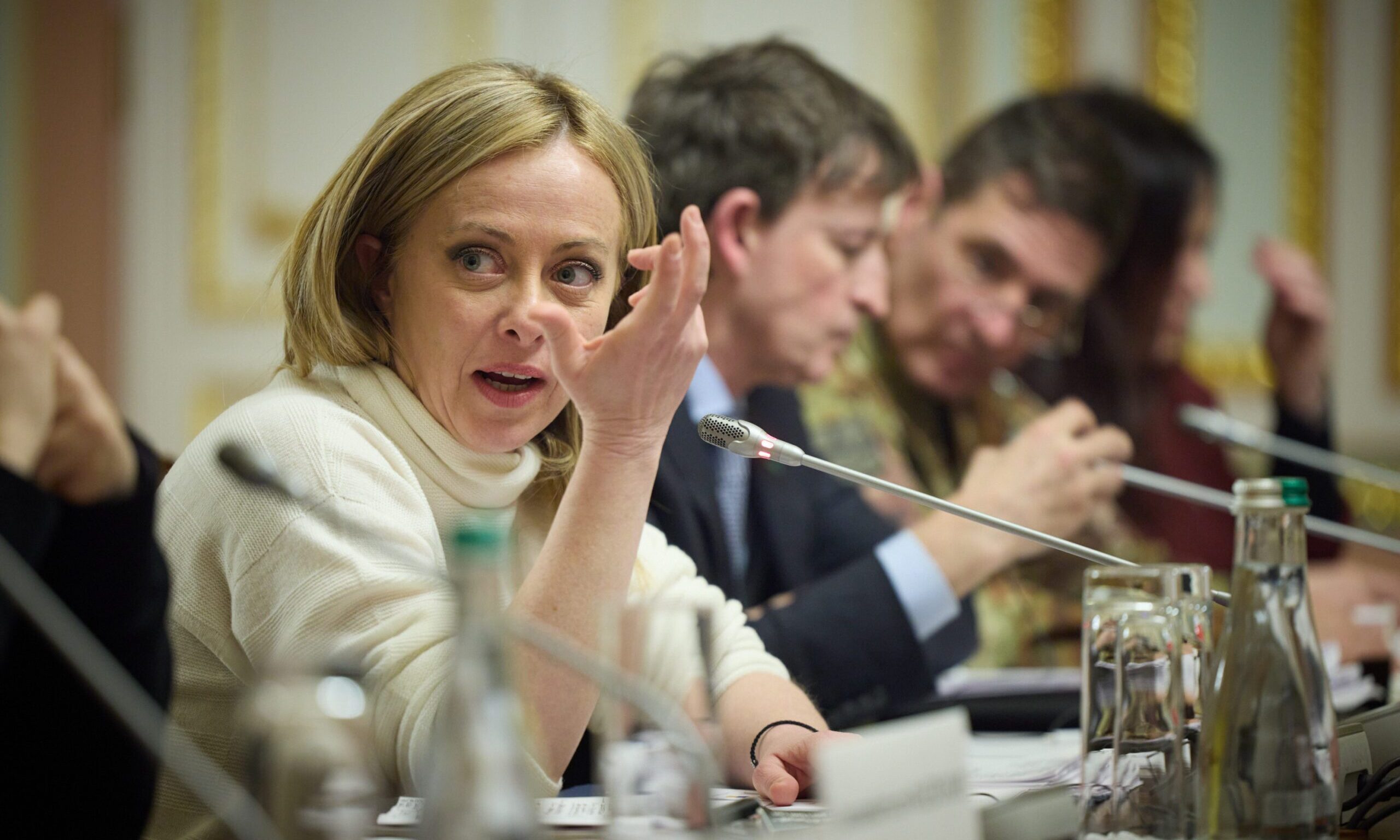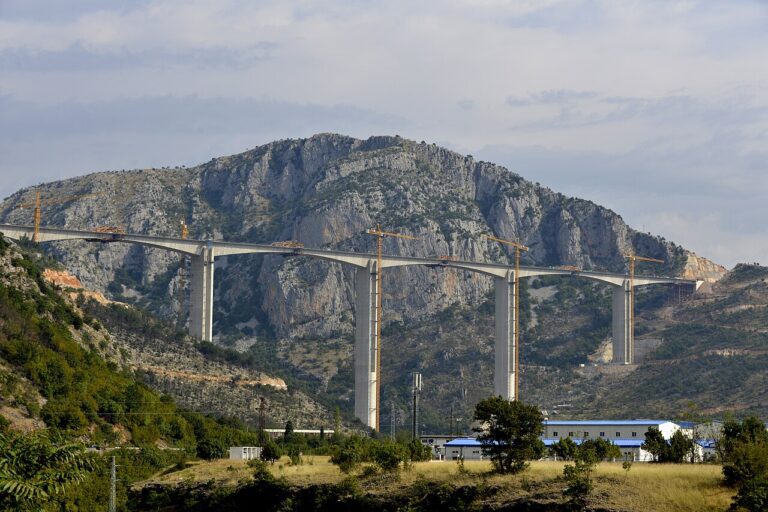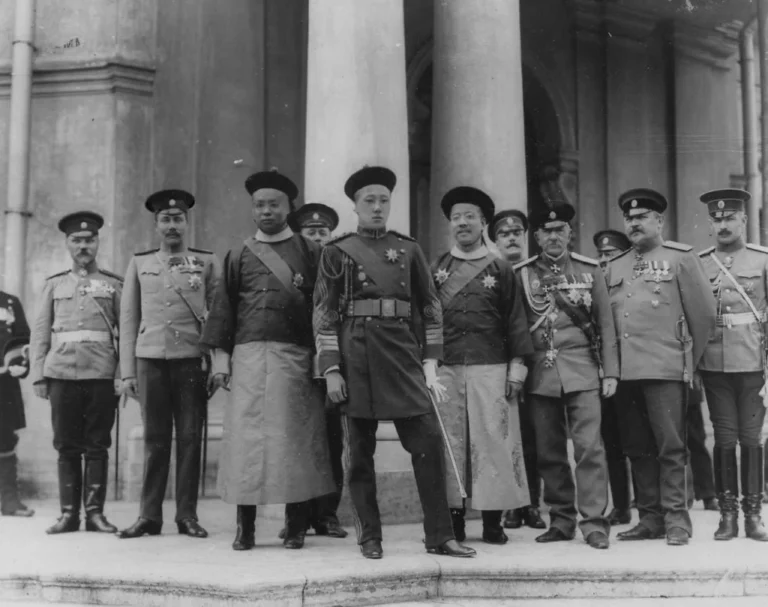From the BRI to the Action Plan: Italy’s China Strategy under Meloni

This article is part of a series of articles authored by young, aspiring China scholars under the Future CHOICE initiative.
Since taking office as Italy’s Prime Minister in 2022, Giorgia Meloni has navigated a complex international landscape marked by increased tensions in both US-China and EU-China relations. The withdrawal from the Belt and Road Initiative (BRI) in 2023 signaled a major shift in Italy’s China policy – toward a more cautious approach. In 2024, however, Meloni made her first official visit to Beijing, aiming to strengthen economic ties between the two countries. This came in the midst of a new challenge in EU-China relations – the EU’s proposal to impose tariffs on Chinese electric vehicles (EVs) – raising an important question: how can Italy balance the benefits of closer engagement with China with the increasing pressures from its Western partners to de-risk the very same relations.
In late July 2024, Giorgia Meloni visited Beijing to strengthen bilateral cooperation between the two countries. This push to relaunch Italy’s relationship with China came after the country’s withdrawal from the BRI – a move widely interpreted as reaffirming Italy’s commitment to its Western alliances and a de-risking strategy. Indeed, since the beginning of her tenure, Meloni has been highly critical of the BRI, calling it “a big mistake,” with the United States questioning Italy’s decision to join the initiative in the first place, arguing that its status as a G7 member state was incompatible with such participation and the memorandum of understanding (MoU) signed between the two states in 2019.
Besides this, the outcomes of such participation failed to meet Rome’s expectations, especially when it comes to trade relations. Rome had sought to offset the imbalance between Italian exports to China and Chinese exports to Italy. The BRI, however, contributed only modestly to increasing Italy’s exports to China, while imports of Chinese products nearly doubled Italian exports. The foreign direct investment (FDI) tied to the BRI was also unexpectedly low.
Hence, Meloni’s cabinet decision to reassess Italy’s position on the BRI – opting for a non-renewal of the MoU – stemmed from both unmet expectations on the economic front and a desire to align more closely with Washington on the (geo)political front. Nevertheless, China remained Italy’s key economic partner, ranking second only to the US among its non-EU trading partners.
The New Action Plan: A Fresh (Re-)Start?
During Meloni’s visit to China, both sides agreed to an action plan aimed at relaunching ties and deepening cooperation. Unlike the MoU on the BRI, which was automatically renewed every five years, the new agreement signed in July is merely for three years. The document delineates the objectives for Italy-China cooperation from 2024 to 2027, with a focus on economic cooperation, scientific and technological innovation, education, sustainability, healthcare, and cultural exchanges.
While the MoU had a strong geopolitical focus, the three-year action plan was designed to be more pragmatic, with a set of practical objectives, especially in trade and infrastructure. Nevertheless, a significant unresolved issue remains: the EU’s broader regulatory framework that continues to impact bilateral dynamics, especially those concerning trade and investment, creating potential clashes between EU regulations and goals of the individual member states.
Addressing the persistent trade imbalance, the action plan underlines the importance of rebalancing commercial ties under more transparent and equitable conditions. This aligns with Meloni’s repeated calls for more fairness in bilateral trade and her efforts to secure greater access to the Chinese market. The two sides also signed an MoU on industrial cooperation, with a particular focus on the EV sector.
Other bilateral agreements included an MoU for cooperation in sustainable development and environmental protection, with Italy’s willingness to collaborate beyond the industrial sphere being further evident during President Sergio Mattarella’s visit to China in November 2024 that saw the two countries signing several agreements on cultural cooperation. These included an MoU between the Italian Ministry of University and Research and the Chinese Ministry of Education, as well as an MoU focused on translating classical Italian and Chinese works.
Beyond Beijing and Washington: Meloni’s Indo-Pacific Strategy
Another key aspect of Meloni’s foreign policy has been to reassure Washington that Italy remains a reliable partner, loyal to its traditional alliances. This is reflected in Rome’s Indo-Pacific strategy, which aligns closely – though not exclusively – with the interests of its Western allies.
The growing importance of the Indo-Pacific, which accounts for 62 percent of the world’s GDP, 46 percent of international trade, and half of global maritime transportation, has prompted Italy to strengthen its own ties with key regional actors, including India and Japan. Indeed, the Italian government has described its engagement in the Indo-Pacific region as “inclusive.”
The Italian navy’s largest aircraft carrier, Cavour, made its first-ever visit to Japan’s Yokosuka Base in July 2024, marking a milestone in Italy-Japan relations. This visit underscored growing strategic cooperation with Tokyo, Rome’s strategic partner since 2023. In June 2024, the two countries also signed a comprehensive three-year action plan to strengthen diplomatic, defense, economic and cultural cooperation. The agreement highlights their shared commitment to upholding the region’s status quo amidst rising regional tensions. The Cavour also participated in the Exercise Pitch Black, a biennial aircraft drill hosted by the Royal Australian Air Force, during which Italy joined forces with other countries to enhance regional security cooperation and operational readiness.
Despite all this, it remains difficult to predict future developments in Meloni’s foreign policy. The return of Donald Trump to the US presidency will undoubtedly affect global geopolitical dynamics, potentially prompting Italy to limit its engagement with China once again. As Meloni seeks to balance Italy’s economic interests with the demands of its Western alliances, both her China and Indo-Pacific strategies will continue to evolve in response to shifting international pressures and opportunities.
Written by
Giulia Longhi
Giulia Longhi is a graduate student in the Master’s program in Chinese Studies at Leiden University. Holding a Bachelor’s Degree in Sinology from the University of Vienna, Giulia specializes in China’s culture, politics and history.


